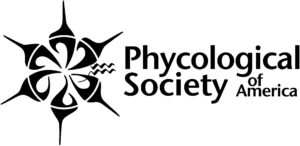
Dear JASM presenters:
We invite you to submit your work presented at the JASM meeting to the Journal of Phycology. Authors are welcome to save time by submitting in any format and only during revisions does a manuscript need to be in the journal format. The Journal of Phycology is a publication of the Phycological Society of America and was founded in 1965 and has a long history of high-quality papers on many aspects of algal research. Currently the journal is 22/111 of journals in Marine and Freshwater Biology, 76/235 in Plant Sciences and has an impact factor of 2.93. More on the journal can be found here: https://onlinelibrary.wiley.com/journal/15298817 and information on the Phycological Society of America and becoming a member of our society can be found on the society website (https://www.psaalgae.org).
As the managing editor, I encourage you to reach out to me and I welcome conversations about your research, potential perspective pieces and minireviews, and other ideas that you may have about future special issues. Thank you and it was great to see many of you at this year’s JASM meeting.
Kirsten Müller (Managing Editor, Journal of Phycology)
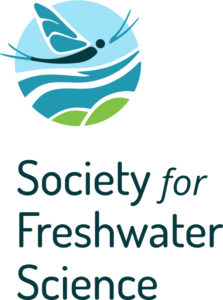
Dear JASM Special Session Chairs,
We are writing to invite your presenters to consider submitting either individual papers or sets of papers to Freshwater Science. Individual paper options include regular research papers, perspectives, or reviews. Clusters of papers based on the content of your special session can be submitted as either special topic series or BRIDGES clusters.
Authors interested in publishing individual papers or special topic series should contact Chuck Hawkins (chuck.hawkins@usu.edu), the Freshwater Science Editor.
Authors interested in BRIDGES contributions should contact the BRIDGES co-editors: Sally Entrekin (sallye@vt.edu) or Krista Capps (kcapps@uga.edu). BRIDGES is a forum for contrasting or complementary perspectives on new and emerging ideas in aquatic science. Clusters are groups of 2-4 short articles (<3000 words) offering different perspectives within a topic area. Topics that build across disciplines are preferred, e.g., integrating public policy and science, improving communication among scientists and other communities, or linking scientific disciplines. In addition to publishing the articles, we work with authors to create BRIDGES fact sheets that highlight the main points of each BRIDGES cluster in non-technical language.
If you would like to discuss opportunities to publish in Freshwater Science in more detail, please contact us. Chuck will be at the meeting through Thursday afternoon and is best reached by email. Sally and Krista will be in front of the registration area during the 10am coffee breaks on Tuesday (May 17) and Wednesday (May 18).
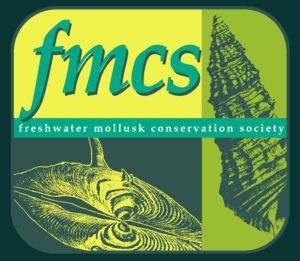 The editors at Freshwater Mollusk Biology and Conservation would like to invite you to publish the papers you presented at JASM in our journal. We seek to aggregate and publish strong science to further freshwater mollusk conservation and recovery. Many outside of our society are unaware of our journal but any topic pertinent to freshwater mollusks is welcome. We look forward to sharing your ideas and work with our larger community.
The editors at Freshwater Mollusk Biology and Conservation would like to invite you to publish the papers you presented at JASM in our journal. We seek to aggregate and publish strong science to further freshwater mollusk conservation and recovery. Many outside of our society are unaware of our journal but any topic pertinent to freshwater mollusks is welcome. We look forward to sharing your ideas and work with our larger community.
Please reach out to our editors with any questions. https://molluskconservation.org/FMBC-journal.html
Wendell Haag, Editor in Chief wendell.haag@usda.gov
Megan Bradley, Managing Editor Megan_bradley@fws.gov
 Dear JASM participant,
Dear JASM participant,
I am writing to invite you to publish your work in the international journal WETLANDS, which is owned by the Society of Wetland Scientists and published by SpringerNature. We will consider any paper that is directly or indirectly related to water and wetlands, under a very wide range of themes.
WETLANDS uses the continuous publishing model, which means papers are published and assigned a volume, issue number, and article number immediately upon acceptance. They are collated in regular issues in order of acceptance, but also in Topical Collections, such as Applied Wetland Science, Ecosystem Services of Wetlands, Wetland Animals, Wetland Biodiversity, Forested Wetlands, Wetlands Education, Wetland Policy and Legislation, and Wetlands and Global Change. For the full list of Topical Collections, currently 28 in total, please see https://www.springer.com/journal/13157/submission-guidelines#Instructions%20for%20Authors_Topical%20Collections.
WETLANDS further is a ‘hybrid transformative’ journal, which means articles may be published in the traditional manner, where copyright is transferred to the publisher, but can also be published Open Access.
Finally, WETLANDS is the first and only scientific journal, anywhere in the world, to allow a second abstract in the native tongue and script (any language) of the authors.
For further information, see https://www.springer.com/journal/13157.
Marinus L. Otte, Editor-in-Chief
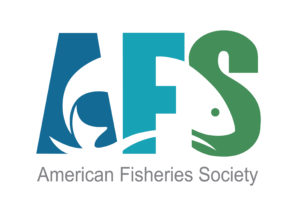 Thank you for your leadership in organizing a symposium at JASM. I’d like to invite you to consider the American Fisheries Society (AFS) when thinking about where to publish.
Thank you for your leadership in organizing a symposium at JASM. I’d like to invite you to consider the American Fisheries Society (AFS) when thinking about where to publish.
AFS books are particularly well suited to publish collections of papers from the mixed-discipline symposium featured at this exciting joint meeting.
AFS Journals are a home for individual articles, special sections, themed issues, and special issues.
Fisheries magazine welcomes individual articles and syntheses.
Should you have questions about publishing with AFS, whether in a book, a journal, or Fisheries magazine, please let me know. AFS publications are well regarded and we are eager to publish the best science.
Stop by booth 701 to chat about the options or please reach out. I’ll be happy to explain how AFS can assure wide dissemination of your session’s content.
Laura Hendee, Publications Director
lhendee@fisheries.org phone: 301-897-8616 ext. 227
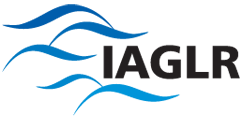 IAGLR is pleased to invite you to publish in our peer-reviewed, multidisciplinary Journal of Great Lakes Research. JGLR has been a trusted source for research on the world’s large lakes and their watersheds since 1975. We welcome manuscripts on a wide range of theoretical and applied topics from such fields as biology, chemistry, physics, geology, economics, and policy, among others. Special sections devoted to selected topics are welcome. No page charges, with an open-access option. Why wait? Review the Guide for Authors today and plan your future submission!
IAGLR is pleased to invite you to publish in our peer-reviewed, multidisciplinary Journal of Great Lakes Research. JGLR has been a trusted source for research on the world’s large lakes and their watersheds since 1975. We welcome manuscripts on a wide range of theoretical and applied topics from such fields as biology, chemistry, physics, geology, economics, and policy, among others. Special sections devoted to selected topics are welcome. No page charges, with an open-access option. Why wait? Review the Guide for Authors today and plan your future submission!
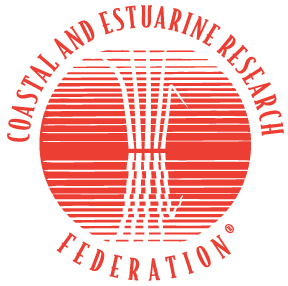 The Editors of Estuaries and Coasts, the official journal of the Coastal and Estuarine Research Federation (CERF), welcome manuscripts resulting from the 2022 Joint Aquatic Sciences Meeting. Proposals for special issues and reviews are also welcome. The journal publishes manuscripts on ecosystems at the interface between the land and the sea, covering aspects of research on physical, chemical, geological, or biological systems, as well as applications to management of those ecosystems. The interface is broadly defined to include estuaries and nearshore coastal waters including lagoons, wetlands, tidal rivers, shorelands, and beaches. The journal publishes original research findings, reviews and perspectives, techniques, comments, and management applications. Estuaries and Coasts is a transformative journal that allows for open access papers as well as traditional papers. The journal has a high impact factor of 2.976 and an average of 35 days to first decision.
The Editors of Estuaries and Coasts, the official journal of the Coastal and Estuarine Research Federation (CERF), welcome manuscripts resulting from the 2022 Joint Aquatic Sciences Meeting. Proposals for special issues and reviews are also welcome. The journal publishes manuscripts on ecosystems at the interface between the land and the sea, covering aspects of research on physical, chemical, geological, or biological systems, as well as applications to management of those ecosystems. The interface is broadly defined to include estuaries and nearshore coastal waters including lagoons, wetlands, tidal rivers, shorelands, and beaches. The journal publishes original research findings, reviews and perspectives, techniques, comments, and management applications. Estuaries and Coasts is a transformative journal that allows for open access papers as well as traditional papers. The journal has a high impact factor of 2.976 and an average of 35 days to first decision.
Please contact Editors-in-Chief Linda Deegan (ldeegan@woodwellclimate.org) and Paul Montagna (paul.montagna@tamucc.edu) if you are considering a special issue. If you are considering a reviews or perspectives article, please contact Reviews Editor Ken Heck (kheck@disl.org).
